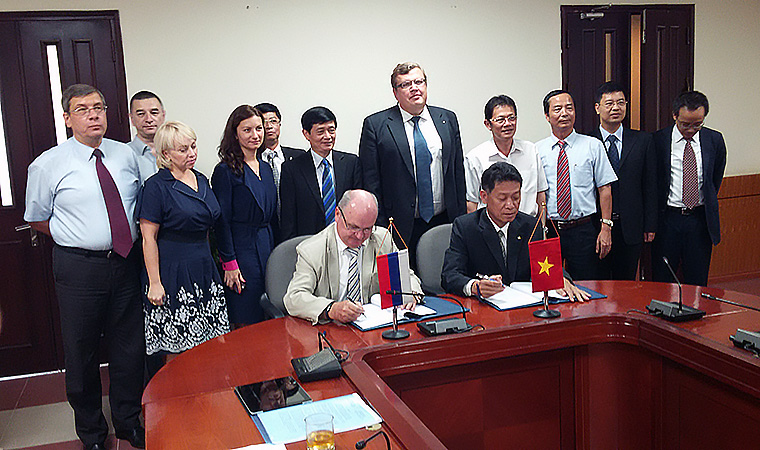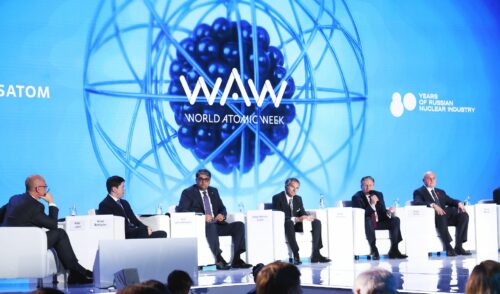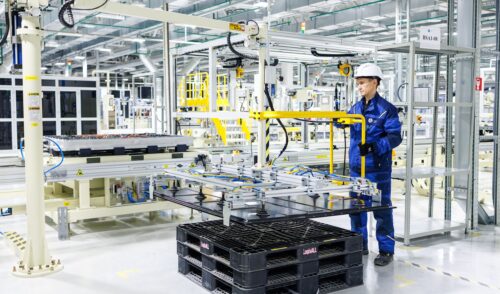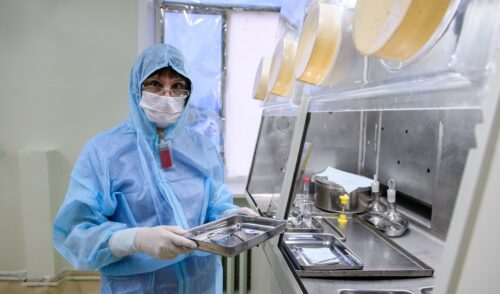
Ninh Thuan 1: a new frontier
back to contentsThe Stage 1 construction agreement was signed by representatives of Rosatom’s united engineering company ASE-NIAEP and the state-owned Electricity of Vietnam (EVN).”The agreement signed at the first meeting of the joint Ninh Thuận 1 project team is a huge step towards the construction of the first nuclear power plant in Vietnam,” said a spokesperson for Rosatom.
Work Ongoing
According to the strategy approved by the Vietnamese Government, Hanoi plans to build 13 units with a total capacity of 15 GW, or 10% of total electricity generated in the country, by 2030.
The initial agreement on the first nuclear power plant was signed by Russia and Vietnam in October 2010. It provides for the construction of two Russian-designed 1,200 MW units at Ninh Thuận 1. The project owner is EVN. Russia will provide a RUB 8bn state loan to finance the project.
The Vietnamese Government gave its permission to kick off the document preparation process. A project feasibility study and a site selection report for the Vietnamese nuclear station were ready in December 2013. All the project documents were submitted to the Vietnamese partners last October and has been awaiting approval since then.
Vietnam Prime Minister Nguyen Tan Dung has approved a site clearance plan for the nuclear power plant.
Rosatom to help with human resources
Rosatom assists Vietnam in training nuclear industry professionals. This year, Russia welcomes 80 Vietnamese students to major in nuclear-related fields at Rosatom’s core universities. 60 students will study at the Far Eastern Federal University (FEFU) in Vladivostok while the other 20 will take a master’s course at the Tomsk Polytechnic University. In accordance with the nuclear staff training program for 2010–2020, at least 70 students from Vietnam will come to Russia every year to study nuclear-related professions. Most of them will be taught in Obninsk, a nuclear science town, featuring a dedicated center to train employees for the prospective nuclear station in Vietnam.
“There are 13 Vietnamese students doing a preparatory course in our university. They study Russian with an emphasis on math and physics, and develop social skills to live in Russia. The young Vietnamese will then have an opportunity to choose a nuclear major,” explains Vadim Pislyak, Deputy Head of the FEFU Nuclear Technology Education Center. “FEFU has developed an education curriculum for Asia-Pacific students and industry employees who will work at nuclear power plants.”
The curriculum comprises four components – a pre-university preparation course; a bachelor’s program for students speaking a language of an Asia-Pacific country or speaking English in compliance with the IAEA requirements (for school graduates from Asia-Pacific and CIS countries); continuing professional education courses and trainings (for industry professionals with higher education and knowledge of the Russian language, and workers with nuclear-related professional experience); and practical trainings at nuclear power plants (for NPP employees to conduct a performance review and participate in emergency drills).
“The FEFU Nuclear Technology Education Center has all the facilities to support this curriculum,” notes Vadim Pislyak. “The Center features an advanced nuclear safety and technology laboratory equipped with VVER-1200 and SVBR-100 simulators. In association with Rosatom, the laboratory carries out research on safety and efficiency of new nuclear fuels.”




